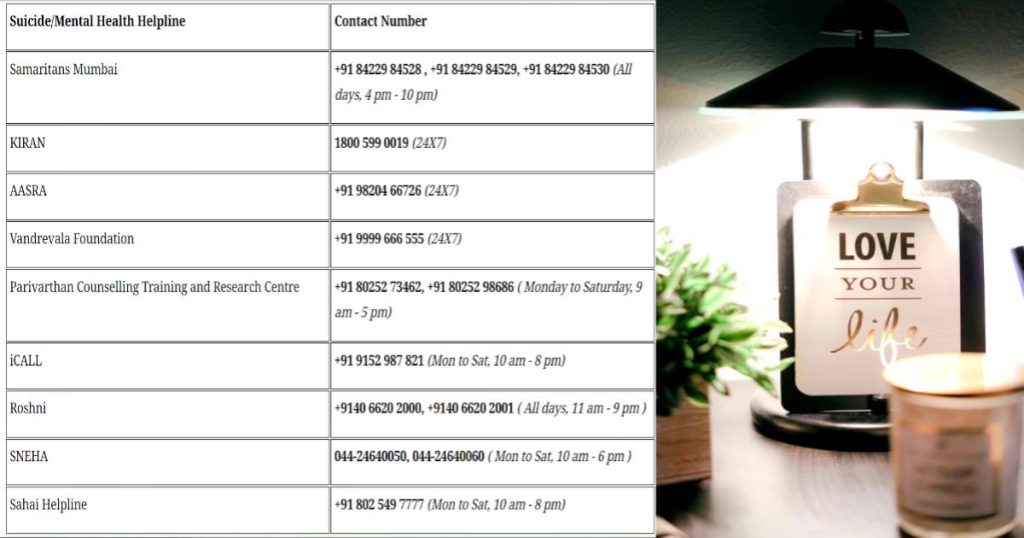Mental Health…. is there still stigma and discrimination around it? Yes, of course, there is a negative attitude in society, employment, and social media towards mental health and this is more prevalent in developed countries like UK & USA. But at the same time, more celebrities like Katy Perry, Selena Gomez, Marvel star Elizabeth Olsen, and many more are opening up with their stories on this subject. It’s a good sign, sounds cool, inspires millions, and is being widely accepted too.

Tennis superstar Naomi Osaka withdrew from French Open in May 2021 citing her mental health issue. Other prominent athletes like Serna Willaims, Olympian Simone Biles, Usain Bolt, and Michael Phelps voiced their support for mental health.
Virat Kohli, one of the fittest and most successful Indian Cricketers candidly talked about his mental health struggles in Aug 2022. Other famous cricketers like Glenn Maxwell, Ben Stokes, Marcus Trescothick, and Jonathan Trott chose to prioritize mental health over the sport at the peak of their careers.
Poor mental health and mental illness are two distinct things, even though the phrases are sometimes used synonymously.
According to the World Health Organization (WHO) “Mental health is a state of mental well-being that enables people to cope with the stresses of life, realize their abilities, learn well and work well, and contribute to their community.”
How Crucial is Mental Health To General Well-being?
Both physical and mental health are crucial aspects of general well-being. It influences our thoughts, emotions, daily living, relationships, and physical health. As an overview, depression increases the risk of a wide range of physical medical problems, particularly chronic conditions like diabetes, cardiovascular disease, and stroke. Similarly having chronic conditions increases your risk of getting a mental illness.
Mental Health Disorders: Types
More than 200 types of mental disorders exist, so distinct types are grouped collectively based on their common features. Some main types are as follows:
- mood disorders
- anxiety disorders
- schizophrenia disorders
How Widespread Is Mental Disorder?
Today world is facing this issue in several forms such as autism or intellectual disability in childhood, substance abuse, depression, and psychosis or dementia in old age.
Recently the WHO released the World Mental Health Report, 2022. As per the report, in 2019 almost a billion people, 14% of whom were adolescents, were living with some form of mental health issues and called for further action on addressing it.
The Comprehensive Mental Health Action Plan 2013–2030 has been adopted by all 194 WHO member nations but development under it has been slow.
According to the National Institute of Mental Health (USA), approximately 14.2 million adults, or about,5.6% population in the U.S, had a serious psychological condition.
The National Mental Health Survey (India) found that almost 14% of the population required active mental health interventions. Globally, India has one of the highest prevalence of mental illnesses.
Causes Of Mental Illness
A recent study describes several socioeconomic causes, such as poverty or weak economic status and even residing on the outskirts of a large town, and additionally observed that being female also increased the threat of low mental health status by nearly 4 times.
The researchers also mentioned numerous flexible (modifiable) and inflexible (nonmodifiable) factors that contribute to mental disorders.
Modifiable factors include socioeconomic conditions, such as job availability, social involvement, housing quality, education, etc.
Non-modifiable factors include age, gender, ethnicity, and nationality.
Many studies conclude that adverse childhood experiences such as parental separation, parental loss, and childhood abuse have a significant effect on the development of a child’s mental and physical health.
Physical issues, such as cancer, diabetes, and different chronic pain may cause to develop stress and mental health conditions such as anxiety and depression.
Ways To Maintain Your Mental Health

Practicing self-care can facilitate and enhance a person’s mental health by reducing a person’s risk of sickness, boosting energy levels, and managing stress.
Few medically proven recommended tips to assist a person to begin with their self-care routine:
- Regular exercise (for approx. 45 minutes, at least 3 to 5 times a week),
- Have a balanced diet and be hydrated,
- Good-quality sleep,
- Practice relaxing activities (like Breathing exercises, meditation, etc.),
- Practice gratefulness daily (by actively figuring out matters for which you are thankful),
- Challenge all your negative thoughts (by introspecting & being aware of negative and unhelpful thoughts),
- Positive social interactions (Maintaining meaningful connections and relationships aids in reducing stress and can also be a source of support, motivation, and practical help in times of need)
- Develop coping competencies, and
- Seek medical assistance if you need it.
Positive mental fitness helps people to: Realize their full potential, Cope with life stress, work efficiently & productively, Make significant contributions to their communities, etc.
Government’s Role
Governments and other stakeholders can take several important steps including accurate information, consciousness, and education about psychological health and ailment; better (and more) wellness centers for presently underserved communities; better social and financial protection.

The Supreme Court of India has declared healthcare to be a fundamental right under Article 21 of the Constitution.
Mental Healthcare Act 2017: Guarantees access to mental healthcare and treatment from services run or funded by the government to every concerned person.
In 2020, a 24/7 toll-free helpline ‘Kiran’ (1800-500-0019) launched by the Ministry of Social Justice and Empowerment to provide support to people facing anxiety, depression, stress, suicidal thoughts, and other mental health concerns.
Conclusion From A Conceptual Standpoint
To promote the cause of mental health as a crucial global health endeavor, certain initiatives must be performed. These steps entail the creation of a unified voice and shared framework for participating in public discourse, the constant implementation of social justice and human rights-based approach to mental health, and the creation of scientific proof that goes beyond just addressing stigma.
Overall timely intervention, sensitivity to the issue, availability of medical aid, and appropriate policies is the need of the hour to ameliorate the condition, which also requires a collaborative public-private-social partnership to improve the situation considerably.










Comments 1